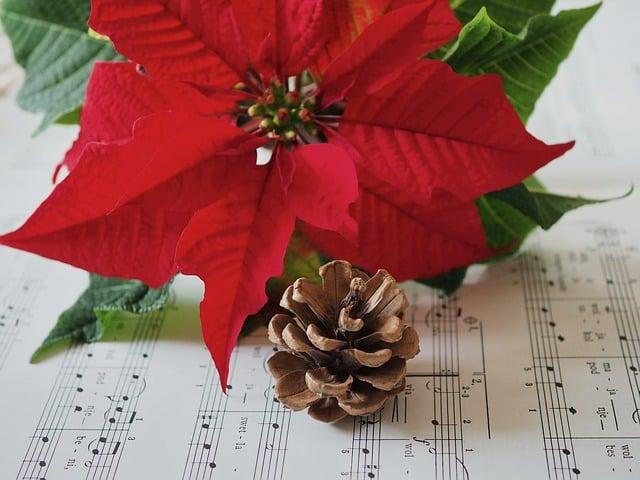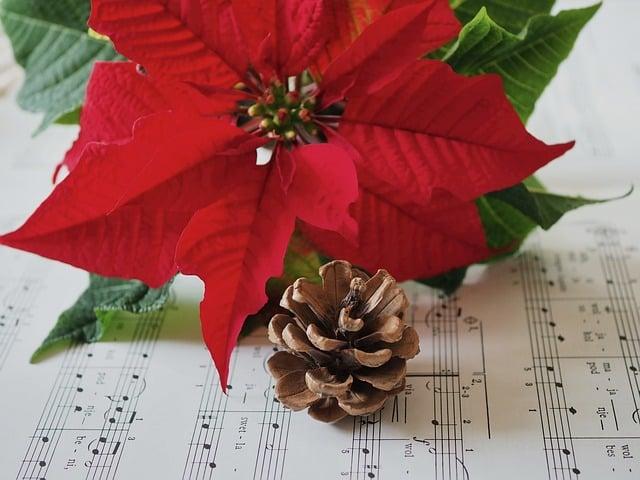As December approached, Clara rummaged through her attic, uncovering a dusty Advent calendar her grandmother had made. Each door held a tiny surprise—a chocolate, a verse, a memory. Clara remembered her grandmother’s stories of waiting for Christmas, a time of hope and reflection.
Though rooted in Christian tradition, Clara realized the calendar transcended religion; it was a celebration of anticipation and joy. As she opened the first door, she felt a warmth that connected her to generations past, reminding her that the spirit of Advent could be shared by all, regardless of belief.
Table of Contents
- Exploring the Origins of Advent Calendars and Their Religious Significance
- The Evolution of Advent Calendars: From Tradition to Modern Interpretation
- Incorporating Spiritual Practices into Your Advent Calendar Experience
- Choosing the Right Advent Calendar: A Guide for Every Belief System
- Q&A

Exploring the Origins of Advent Calendars and Their Religious Significance
The tradition of Advent calendars can be traced back to the early 19th century, primarily in Germany, where families would mark the days of Advent leading up to Christmas. Originally, these calendars were simple, often consisting of chalk marks on doors or the use of small religious images. As the practice evolved, the calendars transformed into more elaborate creations, featuring doors that could be opened to reveal a small gift or a scripture verse. This evolution reflects a growing desire to engage with the anticipation of Christmas in a tangible way, allowing families to count down the days while fostering a sense of community and shared faith.
While Advent calendars are often associated with secular celebrations today, their roots are deeply embedded in Christian tradition. The period of Advent itself is a time of preparation and reflection, marking the four weeks leading up to Christmas. Many calendars incorporate **scriptural passages**, **prayers**, or **devotional activities** that encourage spiritual growth and mindfulness. By opening a door each day, individuals are invited to pause and reflect on the significance of the season, reinforcing the religious aspects of Advent. Thus, while the modern interpretation may vary, the underlying purpose remains a celebration of faith and anticipation of the birth of Christ.

The Evolution of Advent Calendars: From Tradition to Modern Interpretation
The history of Advent calendars is steeped in tradition, originating in the early 19th century among German Lutherans who sought a way to mark the days leading up to Christmas. Initially, these calendars were simple, often consisting of chalk marks on doors or the lighting of candles. As the practice evolved, the calendars transformed into more elaborate creations, featuring small doors that concealed images or scriptures, serving as a daily reminder of the anticipation of Christ’s birth. This traditional approach emphasized the religious significance of the Advent season, allowing families to engage in daily reflections and prayers.
In contemporary society, Advent calendars have undergone a remarkable transformation, embracing a variety of themes and interpretations that extend beyond their religious roots. Today, they can be found in countless forms, from chocolate-filled delights to beauty products and even quirky toys. This modern interpretation has broadened the appeal of Advent calendars, making them accessible to a wider audience, regardless of religious affiliation. While many still incorporate spiritual elements, others focus on the joy of giving and receiving, highlighting the festive spirit of the season. The evolution of Advent calendars reflects a blend of tradition and innovation, showcasing how cultural practices can adapt to meet the changing values and interests of society.

Incorporating Spiritual Practices into Your Advent Calendar Experience
As the days of December unfold, an Advent calendar can transform into a sacred ritual that deepens your spiritual journey. By incorporating meaningful practices, you can turn each day into an opportunity for reflection and connection. Consider setting aside a few moments each day to engage in activities that resonate with your beliefs. This could include:
- Daily Meditation: Spend a few minutes in silence, focusing on your breath or a specific intention for the day.
- Gratitude Journaling: Write down three things you are grateful for, fostering a sense of appreciation and mindfulness.
- Scripture Reading: Select a passage that speaks to you, allowing its wisdom to guide your thoughts and actions.
- Acts of Kindness: Plan a small act of kindness each day, embodying the spirit of giving and compassion.
In addition to these practices, consider creating a space that reflects your spiritual journey. Decorate your Advent calendar area with symbols that hold personal significance, such as candles, crystals, or images that inspire you. Each day, as you open a new door, take a moment to pause and reflect on the meaning behind the symbols and practices you’ve chosen. This intentional approach not only enriches your Advent experience but also nurtures your spirit, allowing you to embrace the season with a heart full of hope and joy.

Choosing the Right Advent Calendar: A Guide for Every Belief System
When selecting an Advent calendar, it’s essential to consider the diverse beliefs and traditions that exist. For those who observe the Christian faith, traditional calendars often feature biblical verses, nativity scenes, or images of saints, enhancing the spiritual journey leading up to Christmas. However, for individuals from other belief systems or those who prefer a secular approach, there are numerous options available that celebrate the season without religious connotations. These calendars might include:
- Festive themes: Featuring winter scenes, holiday symbols, or cultural motifs.
- Personalized treats: Filled with chocolates, teas, or small gifts that reflect personal interests.
- Mindfulness and self-care: Offering daily affirmations, wellness tips, or activities that promote relaxation and joy.
Ultimately, the right Advent calendar should resonate with the individual’s values and preferences. Whether one seeks a calendar that deepens their spiritual connection or one that simply brings joy and excitement during the holiday season, the options are vast and varied. By exploring different styles and themes, everyone can find a calendar that enhances their experience of this special time of year.
Q&A
-
Are Advent calendars exclusively religious?
No, Advent calendars are not exclusively religious. While they originated in Christian traditions to count down the days of Advent leading up to Christmas, many modern versions are secular and focus on festive themes, treats, or activities.
-
What is the religious significance of Advent calendars?
In religious contexts, Advent calendars serve as a way to prepare for the celebration of Christmas. Each day represents a day of anticipation, often accompanied by scripture readings or prayers that reflect on the meaning of the season.
-
Can non-Christians use Advent calendars?
Absolutely! Non-Christians can enjoy Advent calendars as a fun way to celebrate the holiday season. Many people appreciate the countdown aspect and the joy of daily surprises, regardless of religious beliefs.
-
Are there different types of Advent calendars?
Yes, there are various types of Advent calendars available. They range from traditional ones with religious imagery to modern versions filled with chocolates, toys, or even beauty products, catering to diverse interests and preferences.
while Advent calendars have roots in Christian tradition, their modern interpretations often transcend religious boundaries. Whether for spiritual reflection or festive fun, they invite all to embrace the countdown to the holiday season.

大家好,我是彼得潘,專業的手法身體治療師。我喜歡探索和研究各種主題,並透過與人工智慧的合作分享專業、實用、有趣的文章。我們定期進行人工審核,以確保內容的準確性。如果您發現文章中有任何不準確的地方,請隨時與我們聯繫,我們會及時糾正。您可以透過 [email protected] 與我們聯繫。



